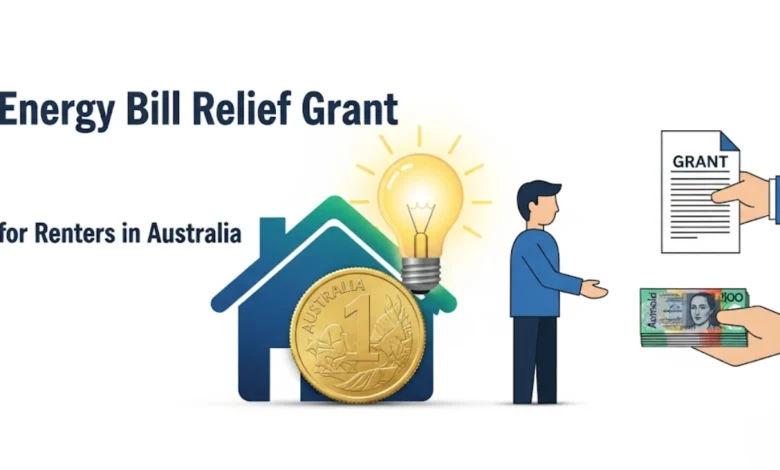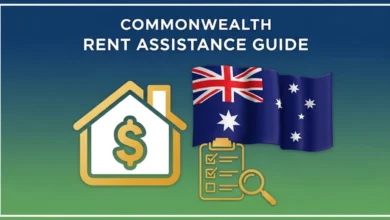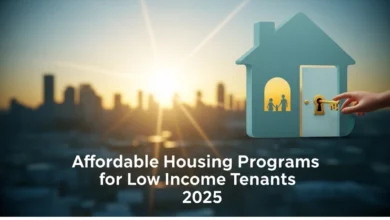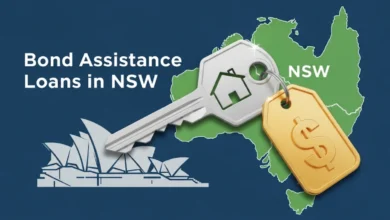Energy Bill Relief Grant 2025 for Renters in Australia

the Australian government announced fresh updates to the Energy Bill Relief Grant 2025. This program is designed to help renters and households facing high energy costs. With electricity prices continuing to rise across many states, the grant has become a much-needed support for people on low and middle incomes.
What is the Energy Bill Relief Grant 2025
The Energy Bill Relief Grant 2025 is a government program that gives direct financial help to renters and households. It is aimed at lowering the burden of electricity and gas bills. Renters who often cannot access rebates because bills are in the landlord’s name can now qualify under special rules. The grant offers a set amount that goes directly to offsetting energy costs.
Read More: Affordable Housing Programs for Low Income Tenants 2025
Why Renters Need This Support
Renters in Australia often face higher living costs. They have little control over energy efficient upgrades like insulation or solar panels. In many cases, bills are passed on from landlords without any subsidy. This makes renters more vulnerable to rising prices. The new grant recognizes this gap and provides a fairer system where tenants can also benefit.
Who Can Apply in 2025
To be eligible for the grant in 2025 renters need to meet certain conditions. These include
- Living in a rental property in Australia
- Having a valid lease or rental agreement
- Meeting income test requirements set by the state or federal government
- Proving that they pay part or all of the energy bill
Low income households and concession card holders will be given priority. Some states may also expand the grant to students and part time workers.
How Much is the Energy Bill Relief Grant
The grant amount varies by state and household size. In most cases renters will get between 250 to 500 dollars off their annual energy bills. In some high cost areas the payment may be higher. The funds can be applied as a credit to electricity bills or provided as a rebate through energy retailers.
How Renters Can Apply
Renters can apply online through their state government energy department. The steps usually include
- Filling out an application form with personal and rental details
- Uploading a copy of the rental agreement or tenancy proof
- Adding recent energy bills if available
- Waiting for approval and payment confirmation
Applications can also be submitted through local community centers or service providers for those who do not have online access.
Key Dates Renters Should Know
- Applications open in March 2025 in most states
- Payments will be rolled out from July 2025
- The grant will continue through the financial year 2025 to 2026
Renters should apply early since funds may be capped in some regions.
Common Questions About the Grant
Can renters who share a house apply
Yes. If your name is on the rental agreement you can apply. Some states will also allow multiple tenants to apply if bills are split.
What if the landlord pays the energy bill
If the landlord pays and includes energy in the rent you may not qualify. However in some cases you can apply if you can prove a direct energy charge in your rental contract.
Do students qualify
Students may qualify if they meet the income test and live in private rentals.
Can the grant be combined with other rebates
Yes. Renters can still access state energy rebates and concession discounts. The grant is designed to add extra relief not replace other schemes.
Benefits Beyond Financial Help
The grant does more than just cut bills. It reduces stress for renters and gives them more security during times of rising costs. It also promotes fairness since homeowners already get rebates through other programs. Renters now have a way to share the same support.
State by State Variations
Each state and territory in Australia manages the program differently.
- New South Wales offers larger credits for families with children
- Victoria focuses on low income renters and provides easy digital applications
- Queensland includes regional renters who face higher costs due to distance
- Western Australia and South Australia provide automatic payments for concession card holders
- Tasmania and the ACT add extra support during winter when heating costs rise
Tips for Renters to Lower Bills
The grant is a big help but renters can save more by using practical steps.
- Switch off appliances when not in use
- Ask landlords for energy efficient light bulbs
- Compare energy providers to find better rates
- Use smart meters to track daily energy use
- Join community energy programs where available
Even small changes can make a difference when combined with the grant.
Challenges Renters Still Face
While the grant is positive there are still gaps. Not all renters have bills in their own name. Some landlords may resist providing proof of tenancy. Others may include high energy costs hidden in the rent. To address this the government may need stricter rules and more education for landlords and tenants alike.
Future of Energy Bill Relief in Australia
The Energy Bill Relief Grant 2025 is part of a wider plan to transition Australia toward cleaner and fairer energy. Over time the government aims to reduce costs by investing in renewable energy projects and efficiency upgrades. Renters may see future programs that provide solar rebates or smart energy tools directly in rental homes.
Why This Grant Matters in 2025
With global energy prices uncertain and living costs climbing, this grant is a lifeline. It shows that renters are being recognized in national policy. It provides immediate relief while also paving the way for a fairer energy market.
Conclusion
The Energy Bill Relief Grant 2025 for renters in Australia is a vital program. It reduces the financial pressure of electricity and gas bills. Renters who have long missed out on rebates can now benefit. By applying early, understanding eligibility rules, and combining the grant with energy saving steps, tenants can manage costs more effectively. This program reflects a growing commitment to support vulnerable households and create a fairer energy future.



